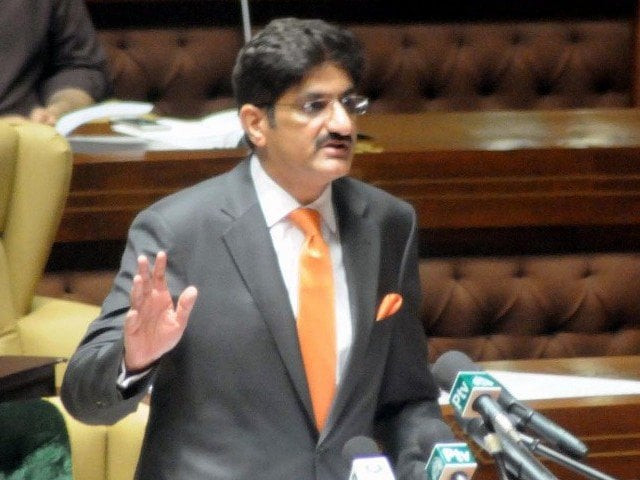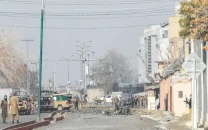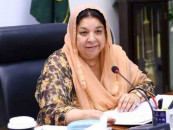Bilawal displeased with govt, admits Sindh CM
Murad Ali Shah demands more funds from federal govt for flood affectees rehabilitation

Chief Minister Syed Murad Ali Shah on Wednesday admitted that Pakistan Peoples Party (PPP) Chairman Bilawal Bhutto-Zardari was "displeased" with the government's rehabilitative efforts after the devastating floods of 2022.
Speaking on the floor of the Sindh Assembly, the CM said that "Bilawal Bhutto and the Sindh government are still dissatisfied," as he urged the federal government to extend further support to the flood-affected areas.
The statement has renewed speculation of “political differences” between the coalition partners, the PPP and the PML-N -- something Bilawal had himself denied a day earlier.
It may be noted that the differences between the two parties emerged after the scion of the Bhutto dynasty in a public gathering in Swat on Saturday accused the ruling coalition government of ignoring the provinces that bore the brunt of last year’s devastating floods in the proposed budget.
Reiterating the same stance today, Shah said, "we want the government to compensate for the deprivation of the province that had ensued for the past three years [of the former PTI government."
"The federal government must prioritise developmental projects in Sindh," he added.
Shah also said that "Rs30 billion would be attained from the federal government only after protest".
Read PML-N scrambles to revive IMF deal
He maintained that the government had set aside Rs25 billion in the budget for Sindh and provided assurances for an additional Rs2 billion for the restoration of schools destroyed by the floods.
Subsequently, the Sindh Assembly approved the budget for the upcoming fiscal year before adjourning the session indefinitely.
Notably, the Sindh government has revealed a comprehensive rehabilitation plan in its budget for 2023-24, aiming to revitalise various sectors affected by the devastating monsoon floods of 2022. Chief Minister Sindh, Murad Ali Shah, highlighted the extensive damage caused by the calamity, which affected over 33 million people nationwide, with Sindh bearing the brunt of the destruction.
The floods submerged 70% of the province and affected over 12.4 million individuals, resulting in significant losses to infrastructure, agriculture, education, and other vital sectors. Damage spanned on over 2 million houses, standing crops on 3.8 million acres, about 20,000 schools, and several other sectors.
Twenty-four of the 30 districts of Sindh were declared ‘calamity-hit’ as over 1000 people lost their lives, he said. To address the aftermath, the Sindh government has allocated funds for multifaceted rehabilitation efforts. These include reviving agricultural activity, rebuilding damaged irrigation infrastructure, rehabilitating provincial highways and internal roads, restoring water and sanitation facilities, and providing long-term, low-cost, climate-resilient housing.



















COMMENTS
Comments are moderated and generally will be posted if they are on-topic and not abusive.
For more information, please see our Comments FAQ